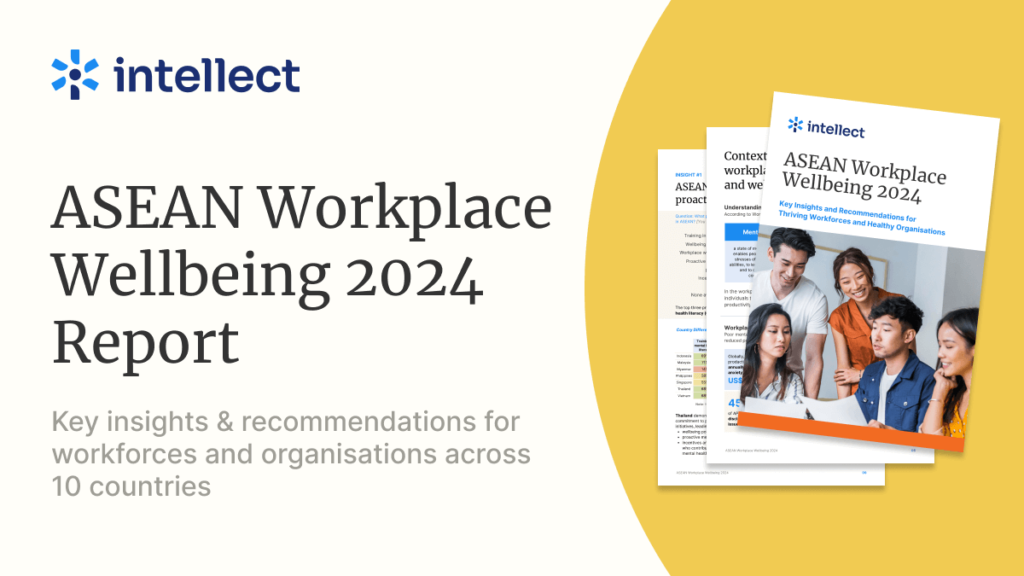C, a Singaporean woman in her late 30s, has always been career-driven. Holding a managerial position in an MNC, she takes pride in the responsibility she has at work.
But as a mother of two young children in a pandemic, C is starting to consider leaving the workforce.
The reason is simple—she’s burnt out.
“I’m always tired,” said C. “I don’t remember the last time I wasn’t tired. The work I used to enjoy just doesn’t feel the same. Right now, I’m just going through the motions.”
The burnout that C feels is becoming increasingly common. Workers globally are suffering from the pressures and stress of the working world, and The Great Resignation has shown that people are no longer willing to put up with it.
However, we need to acknowledge that the impact of burnout is not equal.
Studies on McKinsey’s 2021 Women in the Workplace report surveyed 65,000 Americans and found that 35% of men and 42% of women are burnt out. A survey by LinkedIn also shows this discrepancy, with 74% of women said they were very or somewhat stressed for work-related reasons, compared with just 61% of male respondents.

In honour of International Women’s Day, instead of participating in the usual corporate activities, giving flowers, and creating social media banners, it is important to understand and acknowledge the unique struggle that the average working woman faces today.
Only through understanding what contributes to this higher rate of burnout can we begin to provide actionable and helpful support to their mental wellbeing.
4 reasons why women feel burnt out
While burnout is experienced across different genders, countries, and working classes; women face a unique set of experiences.
Amid a global recession and a pandemic, the pressure placed on women can often lead to an exacerbation of burnout symptoms.
1. Being the designated caregiver
On top of their full-time job, many women also take on the majority of caretaking and housekeeping roles in their households.

One United Nations report states that women do nearly three times as much unpaid domestic work as men.
In APAC, the unpaid caretaking hours that women take on increases to four times that of men, with numbers soaring up to 10 times in India, and 11 times in Cambodia and Pakistan. With schools shut and the healthcare system stretched to its limit, women end up shouldering the burden during the pandemic for childcare, elder-care, and even taking on educator’s role for their children.
For C, she has taken up the majority of the childcare and housework because her husband, who works in finance, travels frequently for work. As a result, it has affected the amount of time that she’s been able to spend on work.
“No one says anything outright,” said C. “But when I have to leave work early to take care of the children or I have to take childcare leave, I feel the judgement.”
With multiple responsibilities and concerns to care for, women also end up taking a greater cognitive load.
The invisible list of tasks required to keep a household running, caring for a child’s wellbeing and education, or managing the health concerns for the sick and elderly, can slowly wear one down. A study by Great Place to Work and Maven found that working mothers are 23% more likely to experience burnout than working fathers.
The COVID-19 pandemic has exacerbated this inequality, with women carrying out three quarters of the world’s unpaid domestic work—approximately 11 billion hours.
Often, the burdens of caregiving will even lead to women choosing to leave full-time employment, or even leave the workforce altogether. According to Shailey Hingorani, head of Advocacy, Research, and Communications at AWARE :
“However, the problem is that (caregiving) remains unpaid. It remains invisible and mostly a woman’s responsibility (…) What this shows us is that as a society, we are either intentionally or unintentionally devaluing women’s labour. And finally, we see that women tend to overrepresented in lower-paying jobs, such as cleaners. It is sometimes assumed that women are choosing these jobs, and there is a grain of truth there, but the question overlooks the structural conditions that are pushing women to choose these jobs in the first place.”
2. Providing emotional labour at work
The term “emotional labour” was made popular in 2015 to explain the unseen daily efforts that go into daily life. Author Gemma Hartley describes it as “the unpaid, often unnoticed labour that goes into keeping everyone around you comfortable and happy. It’s emotion management and life management combined.”
While this brings to mind the previous point on unpaid domestic work, emotional labour often extends to the workplace as well.
On top of the “worry work” that goes into caring for the home, women are more likely to take extra steps to manage the emotions of their peers and create a pleasant workplace. Women are more likely to be delegated “people” tasks, such as party-planning, team-bonding, or organising gift-giving.
Of their own volition, women are also more likely to support co-workers during stressful times, mitigating arguments, or mentoring junior members of the team.

S, a 27-year-old executive in a creative agency, shares that on top of her heavy workload, she often spends extra time at work supporting her colleagues emotionally.
“When work gets stressful, I’m usually the one they go to for advice or to vent about this thing or another,” she said. “At first I enjoyed it and encouraged it, because it made me feel needed. But now, when I am also feeling burnt out, it’s harder to keep up.”
Ironically, this role of support in the workplace also means that women do more than their male counterparts in fighting workplace burnout and it’s taking a toll on their emotional and mental wellbeing. This includes putting aside time to check in on their team, helping teams manage their workloads, and taking on Diversity, Equity, and Inclusion (DEI) efforts.
According to McKinsey, women in senior management are twice as likely to spend time on DEI work outside of their work responsibilities than their male counterparts.
While companies need to acknowledge and reward the emotional labour that helps create a positive workplace culture, Hartley also warns women to be mindful of your priorities and boundaries when it comes to taking on emotional labour.
“You need to be aware of when emotional labor is positive or necessary, and when it is not,” says Hartley. “Emotional labour isn’t inherently bad, but it’s easy to become overwhelmed by all the demands on your time and mental energy.”
3. Climbing a “broken rung”
The term “broken rung” refers to the hindrance women face on their path to senior leadership. Despite their extra efforts, women are presented with fewer opportunities in the workplace.
For every 100 men promoted and hired to manager, only 72 women are promoted. Additionally, men hold 62% of manager-level positions, women hold just 38%. In Singapore, AWARE states that thanks to a 10 to 11% income gap present in the country, women stand to lose out on $640,000 in income over a 40-year period.
This long-standing issue has been observed by many but acknowledged by few. The pressures of the workplace may affect countless others, but being disadvantaged when it comes to promotions or pay raises can be demoralising and harmful. To climb the corporate ladder, women would have to work harder and still receive less recognition and rewards. In the process of “leaning in”, many end up burning out.
It is easy to see how women in these environments end up mentally distancing themselves from their job or leaving the workforce altogether. A study by McKinsey has shown that one in three women are considering downshifting their career or leaving the workforce this year, while four in ten women are already thinking of quitting their current job. As said by Alexis Krivkovich, Senior Partner at McKinsey & Company:
“Companies could be in this perilous moment, where if we double down, we have a real opportunity to win this moment of reflection. But if we don’t, there are so many talented, diverse colleagues in companies that will be thinking: ‘Am I getting the return on the investment I’m putting in when I know I’m giving extra, and I know that my company self-describes they don’t reward it, formally.’ ”
4. Feeling guilty about burnout
While external factors can lead to burnout, clinical psychologist Linda Rinn has also observed that feelings of guilt can worsen the effects of burnout.
Thought patterns that include phrases like “I should have” or “I shouldn’t have” are part of a cycle of guilt that could create more anxiety and stress for people that are already burnt out.

These feelings of guilt, according to Linda, could surround childcare (I should spend more time with my children), work (I should reply to that email), self-advancement (I should be spending my time learning a new language), and even self-care (I should be resting more/eating healthier).
Linda observes that this pattern of thinking is more prevalent in women, and studies agree. According to Europe’s Journal of Psychology, gender roles instilled in childhood contribute to gender differences in “guilt proneness”. Psychologist and author Carol Gilligan said that boys are more likely to feel guilty for breaking the rules, while girls are more likely to feel guilty if the consequences of their actions were relational.
The female reaction to burnout, therefore, is a guilt of letting people down if they were to take a break. As C puts it, “Of course I want to take a break! But with my colleagues, my family, and my children all relying on me—I can’t. I just can’t.”
S’s sentiments are similar: “There are still so many things that I should be doing better, but I am not. I don’t feel like I’ve done anything to earn a break.”
How to overcome burnout
What can women do? Linda suggests the following tips for women to take charge of their wellbeing, though she caveated that every individual’s experience is different and one size does not fit all.
1. Ask for help: You can reach out to a partner, family member, employer, or a medical professional like Linda, and start a conversation about lightening your load or finding ways to cope with burnout.
2. Dedicate time for each responsibility: If you’re wear different hats, dedicating a fixed number of hours to performing each role helps to compartmentalise your thoughts and reduce cognitive burnout. This could look like staying offline after office hours.
3. Change your self-talk: Take notice of the things you say to yourself, such as statements like “I should” or “I shouldn’t”, and respond to them with compassion. For example, if your inner critic says, “I should have exercised today,” you could reply, “I appreciate the thought, but it was a stressful day.” Thereafter, release the thought and accept the day for what it was.
Here are more self-care tips that can improve your mental wellbeing.
How you can help
If you know someone who may be burnt out, refrain from jumping to conclusions; assuming what others want without first understanding their needs can be counterproductive.
Rather than telling a coworker that they seem burnt out, you might take an indirect approach by saying, “Things have been quite hectic at work lately. Do you feel the same way?”
Alternatively, you could say something like, “I read an article about burnout recently, and it said that new moms can find it hard to juggle working and parenting. Do you ever feel like that?”
After hearing them out, offer your help in an open-ended fashion by asking, “Is there anything I can help you with?” They might say no, but you would have established yourself as someone who is willing to help. And when they can use some support, they’re more likely to reach out to you.
How Intellect can help
Sharing personal matters at work is tough, leaving employees feeling distressed, isolated, and disengaged. At times, this can strain relationships and lead to impulsive resignations from invested employees.
Having a support system at work is crucial, which is why Intellect introduced Mental Health First Aid™. This two-day course is globally recognised but culturally tailored, empowering your workforce to be the first responders to coworkers who may be struggling.
Make your organisation a safe space with Mental Health First Aid™ today.




